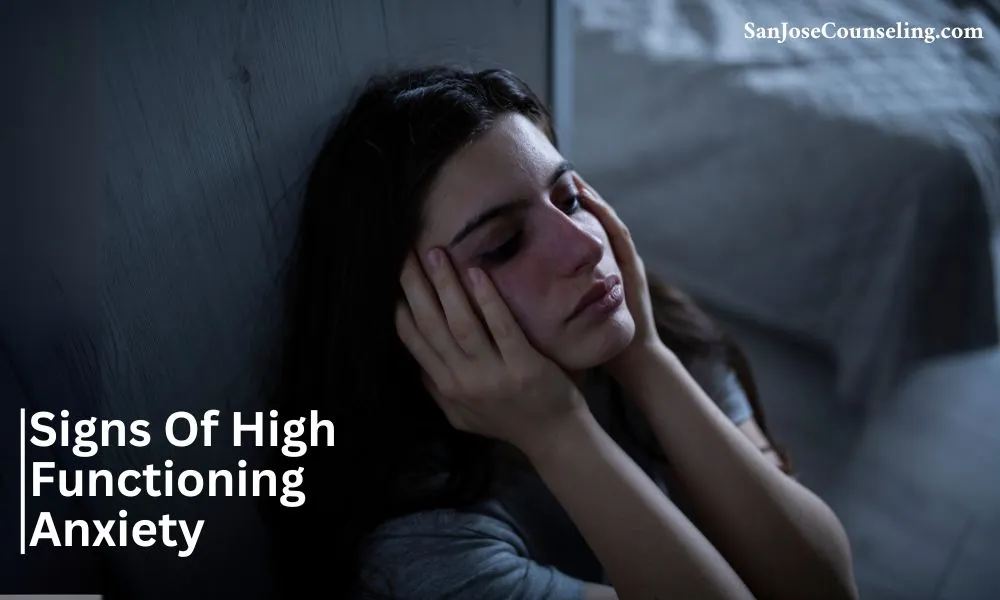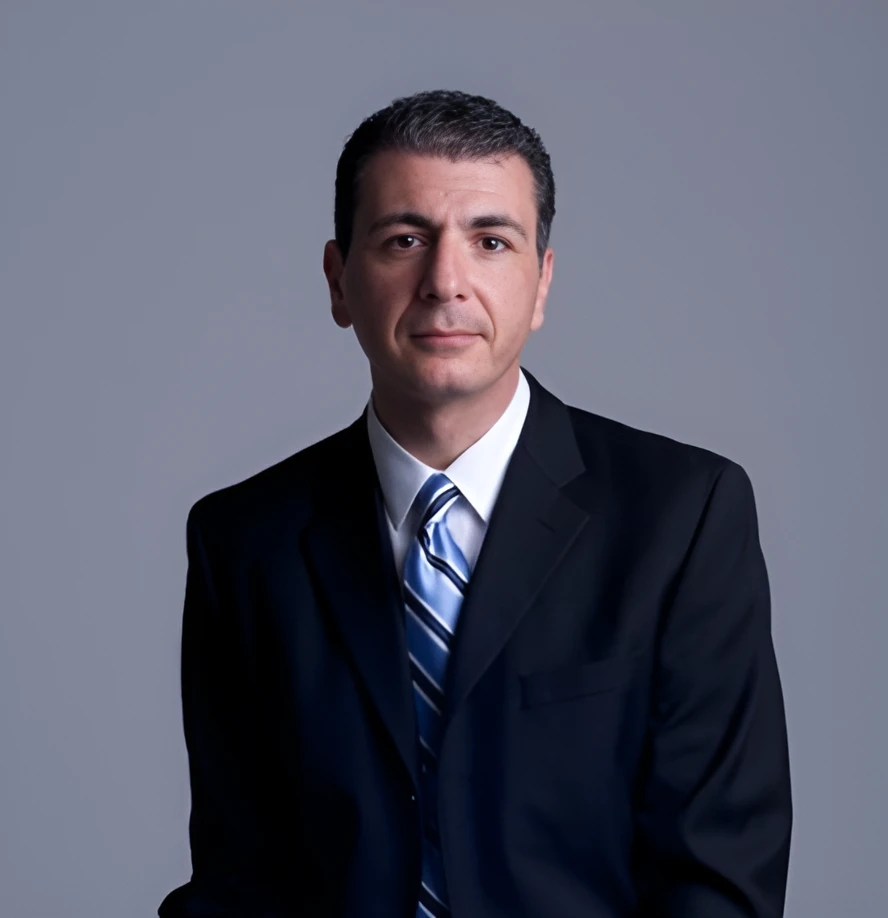Signs Of High Functioning Anxiety

Ever since the COVID-19 pandemic, the amount of patients diagnosed with anxiety disorder has risen drastically. According to studies done by the World Health Organization, anxiety has increased by 25% in adults during just the first year of the pandemic.
There are many theories about what caused this rise. It could have been the isolation procedures that were put into place to prevent the spread. Others believe it was the virus itself. Regardless of the reason, different forms of anxiety have been around long before this dark time in our history.
What Is High-Functioning Anxiety?
People who don't struggle with their mental health conditions may not know precisely what anxiety disorder is. According to MedlinePlus.gov, anxiety is described as “a feeling of fear, dread, and uneasiness.”
It can cause the following symptoms:
- Uncontrollable sweating
- Painfully tense muscles
- Feeling of restlessness
Anxiety can flare up at some of the most inconvenient times. You could be at work stressing about finishing a big project and having to work overtime.
You could also just be alone at home with your thoughts snowballing from one thing to the other. You are worried about more profound subjects like the meaning of life.
But this is just normal anxiety! With high-functioning anxiety, you can deal with it a little easier. Looking at statements made by the West Coast Ketamine Center, “People with high-functioning anxiety may have less obvious signs and symptoms.”
From the outside, HFA patients can continue with their typical day.
Many people may hide their struggles with anxiety from their own family, friends, and even partners. They frequently portray themselves as:
- Confident
- Social
- Driven
It appears in other ways for them. While still being able to push through, they can still be plagued with negative thoughts and feelings.
Individuals constantly strive for control over situations they are involved in, wanting everything to be perfect and not believing that failure is an option.
To put it into perspective, let's take a look at a person with high functioning anxiety named Amanda. Amanda has a routine during the week.
- She goes to school from 9:00 a.m. - 3:30 p.m.
- She comes home to shower, finish homework, and get changed.
- She goes to hang out with her friends until 5:00 p.m.
- She comes home to have dinner, relax, and go to bed.
Amanda doesn't feel like she can deviate from this schedule. She will turn down plans and even reschedule essential appointments so that it doesn't interrupt her schedule. Amanda gets very agitated if situations force her to go out of routine.
How Long Does HFA Last?
High-functioning anxiety can last on and off for a lifetime if it goes untreated, especially if the stressors and triggers that caused it in the first place are still around.
The most recommended way of getting treatment for this disorder is to seek out help from a therapist. They can guide you on strategies to shorten anxiety episodes and show you how to journal down overwhelming feelings.
If medication is warranted, then they can refer you to a psychiatrist. Their main goal is to help you overcome this disorder and live a higher quality of life.
Want to get rid of high-functioning anxiety? Speak to the California best online therapist. Book your free consultation now.
What Causes High-Functioning Anxiety?
The causes can all depend on the patient's environment.
- Growing up in a toxic/abusive household.
- Genetics (if your family has a history of it running in the family).
- Stressful life events.
- Trauma/traumatic childhood experiences.
- Poor health.
Mayo Clinic states: “People with high-functioning anxiety may overfunction, work extra hours, volunteer for extra assignments, or try to do everything perfectly. They may have difficulty saying no or letting others down.”
7 Signs of High Functioning Anxiety
We will divide the signs into physical and mental signs to describe them. This approach will help you achieve a clearer understanding of the overall picture.
Mental Signs:
- Fears of things you can't control: obsessing over how others think of them.
- An urge to control everything in your life. Getting extremely upset when things don't go exactly your way.
- Experiencing a constant feeling of dread, even if it's unwarranted.
Physical Signs:
- Experiencing physical symptoms such as shortness of breath, dizziness (a spinning sensation), or heart palpitations.
- Without warning, experience weakness in your arm and leg muscles.
- Excessive sweating and internal discomfort.
- A tingling/numbness sensation in your hands and feet.
If you are having trouble with one or more of these signs and feel you have high-functioning anxiety - reach out to Dr. Invia. Schedule your free consultation today.
Tips To Manage High-Functioning Anxiety
There are a few things that you can try to manage your anxiety better.
1- Cleaning:
Now, this may sound strange, but reflect on the phrase “a clean space equals a clear mind” literally. Those who struggle with anxiety can very quickly get overwhelmed with the amount of clutter in their space.
By getting organized and arranging your belongings just the way you prefer, you can create for yourself a soothing experience, providing a break from the stressors that contribute to your anxiety.
2- Routine:
Referencing ‘Amanda’ in our earlier discussion, a routine can be your anchor. You will have a clear sense of what to expect for the day, with minimal likelihood of facing anything unexpected.
According to Harvard: “doing the same thing at regular intervals signals to our brains that we are safe.”
3- Journaling:
Big feelings can make you feel like you are drowning. Anxiety can disrupt your thoughts and concentration, making it challenging to focus on other tasks.
So start small—grab a pen and some paper and sit down. Write down your thoughts now, and allow yourself to be vulnerable. Write until the feelings fade, and you can finally breathe again.
Conclusion
Anxiety can feel overwhelming making it seem like your life is over. But it isn't. Don't let fear control you for the rest of your life.
You can take back your life by knowing when to seek help. Confide with your loved ones and other family members about what is happening and how you want to proceed.
If you are struggling to find a therapist who is right for you, contact Dr. Invia and schedule your free consultation today. He can get you the help you need.
5 sources
San Jose counseling.com uses high quality sources, including research papers, academic research institutions, journals, and think tanks to support the facts and maintain content accuracy. This ensures that our esteemed audience receives reliable information.
MedlinePlus
West Coast Ketamine Centre
STANDSTONE CARE
Mayo Clinic Health System
Harvard Business Review
Frequently Asked Questions
What is the difference between anxiety and high-functioning anxiety?
People with high-functioning anxiety have a better time pushing through the symptoms than those with regular anxiety.
What is high-functioning anxiety burnout?
The point at the peak of a person's anxiety that leads them to feel chronically exhausted, resulting in having no drive to deal with their daily responsibilities.
Is high-functioning anxiety curable?
No, but it is treatable with therapy and other anxiety relieving techniques.


